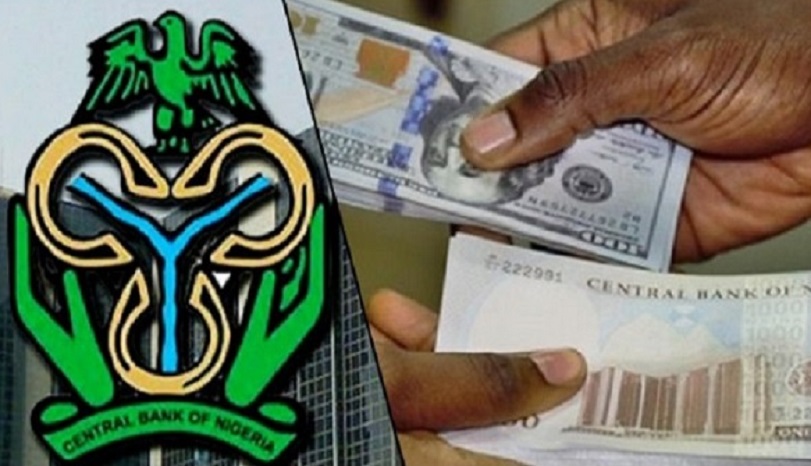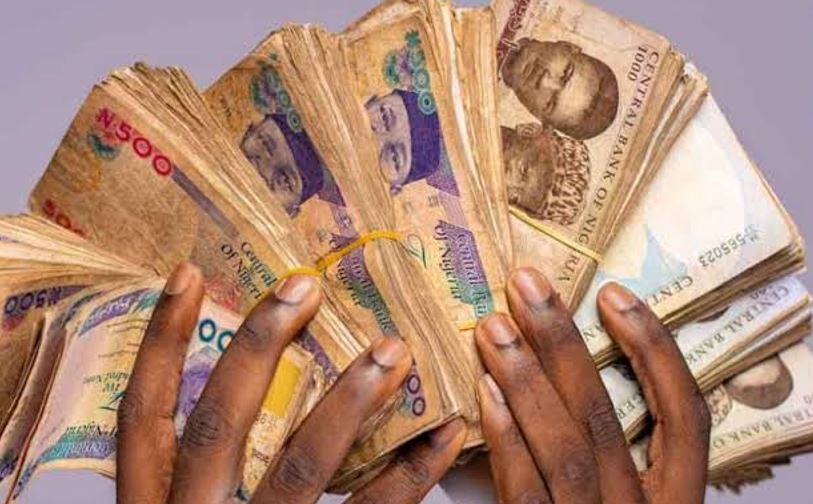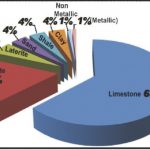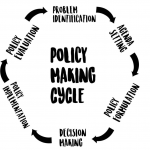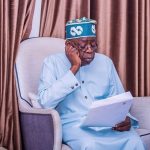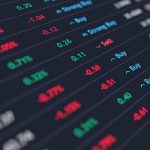Economy
Has Naira-settled OTC FX Futures Stabilized Naira Exchange Rate?
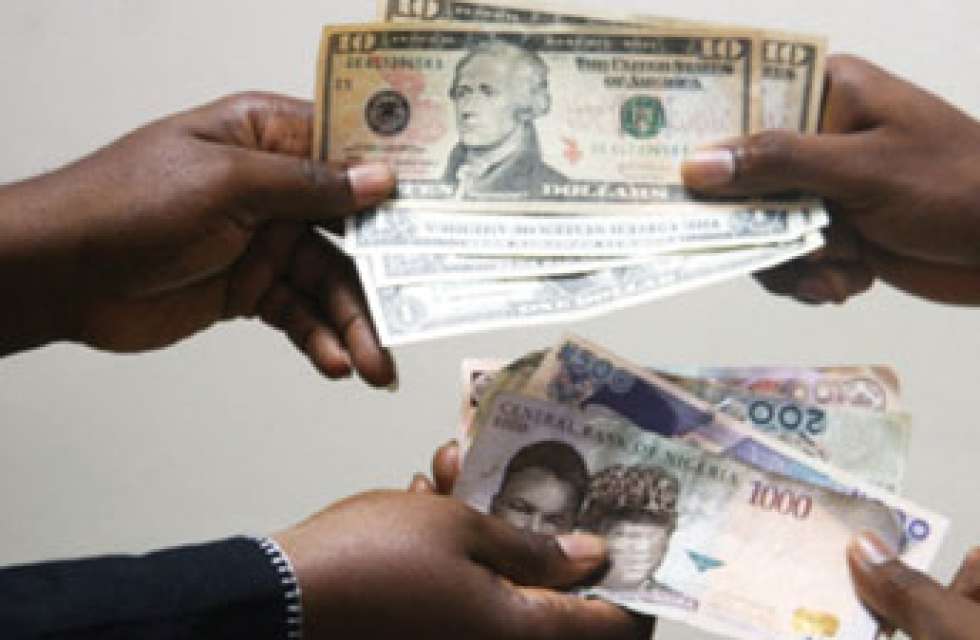
By Quantitative Financial Analytics Ltd
To stem the continued devaluation of the Naira and to breathe some air of stability into the ever-volatile Naira/Dollar relationship, the Central Bank of Nigeria (CBN) introduced some far-reaching measures at different times.
One of such measures was the launching of the Naira-settled OTC FX Futures Market. That “history making” event which commenced on June 27, 2016 made the CBN “the pioneer seller of the Naira-settled OTC FX Futures contracts on the FMDQ OTC Securities Exchange (FMDQ)”.
Before the advent of the Naira-settled OTC FX Futures, various governments in Nigeria had been tinkering with the Naira exchange rate management using different policy driven methodologies at different times.
In 1986, the Exchange Rate Liberalization Policy was introduced and with it, the Naira was devalued officially for the very first time on September 26, 1986 to be specific. From that day till today, the Naira has been heading south.
Economic and financial historians have it that Nigerian governments have tried to manage the exchange rate with the Foreign Exchange (Monitoring & Miscellaneous Provisions) (FEMM) Act of 1995, the two-way Quote System (market making) in the inter-bank FX market in 1996 and the Wholesale Dutch Auction System (WDAS) in 2006.
Unfortunately, it seems none of those worked. It is therefore not surprising that the currency futures market has been put in place as a way to “stabilize” the Naira.
It is now almost two years since the Naira-settled OTC FX Futures market was introduced and the question is ‘how far it has gone in stabilizing the Naira/Dollar exchange rate?’
Though the Naira/Dollar exchange rate continues to remain high, it is a bit comforting that the new FX currency risk exposure management instrument, (the Naira-settled OTC FX Futures), has been able to curb or curtail the speed at which the Naira depreciates relative to the Dollar. At least, for over six months the rate has remained in the N360s to the $.
When used properly, Currency Futures are a veritable instrument of managing foreign currency risk exposure. This works well when there are buyers and sellers and probably not so well when there are buyers with the CBN as the only seller.
By definition, a futures contract is an agreement between two parties where one (the buyer) agrees to buy and the other, (the seller) agrees to sell a given amount of the underlying asset or subject of the contract, at an agreed price on future date.
A futures contract entails a long position by one party and a corresponding short position by another. It does look like the CBN is the seller or the short position party in the Naira-settled OTC FX futures contracts although it is not apparent who the long position parties are.
By their nature, futures are zero sum games. Futures do not involve an initial cash flow, meaning that money does not change hands at the initiation of the contract except where commissions are charged but subsequently, it becomes apparent how much the parties to a contract will pay/receive as the price of the underlying instruments change from day to day.
The method of determining the amount payable/receivable by either party is called marking to market, (the technicalities involved in mark to market calculation will not be part of this discuss).
Market Activity
It is noteworthy to point out that the Currency Futures market in Nigeria has been very active and vibrant since inception although the momentum seems to be reducing as rates converge.
On the date that the market went live, it recoded $26.73 million in open interest. As at April 6, 2018, the open interest had increased to $3,278.43 million, an increase of 12176 percent. This underscores the extent of Nigeria’s dependence on and demand for the dollar, among other implications.
The implication of this is also that, if the CBN is the only party that holds the short positions, it means that the CBN has contracted to sell $3,278.34 million to various parties over a range of period depending on the maturity dates of the contracts.
However, the Naira-settled OTC FX Futures are non-deliverable, meaning that the CBN is not going to sell or deliver $3,278.34 million to the long position holders; rather, the CBN will pay them the difference between the contract price and the NIFEX/NAFEX rate as at the maturity date of each futures contract.
It will be recalled that the first futures contract matured on July 27, 2016, and the CBN had to pay N962.23 million to the long position holder.
For the almost two years of existence of the FX Futures market in Nigeria, 21 of such contracts have matured. Looking at the contract prices of the open trades in relation with the current exchange rate, there is indication that the CBN will be at the paying end of the contracts.
According to analysis by analysts at Quantitative Financial Analytics, the total notional value of all contracts from inception to date is $11.743 billion while total matured contracts stand at $8.464 billion, leaving current outstanding open interest at $3.278 billion.
Out of the matured contracts, the short position holders (probably the CBN) have paid an estimated $503.8 million to the long position holders, according to the analysis.
As said before, currency futures are derivatives, and derivatives are high risk instruments, if used properly, they are beneficial but when misused, they can lead to catastrophe.
To a large extent and in most recent times, the FX currency futures market has helped in stabilizing the Naira Dollar exchange rate although the decreasing momentum arising from convergence of rates may diminish its role in managing the currency risk exposure of Nigerians. We are watching
Economy
Trump’s Tariff: Alake Woos Investors to Nigeria’s Solid Minerals Sector
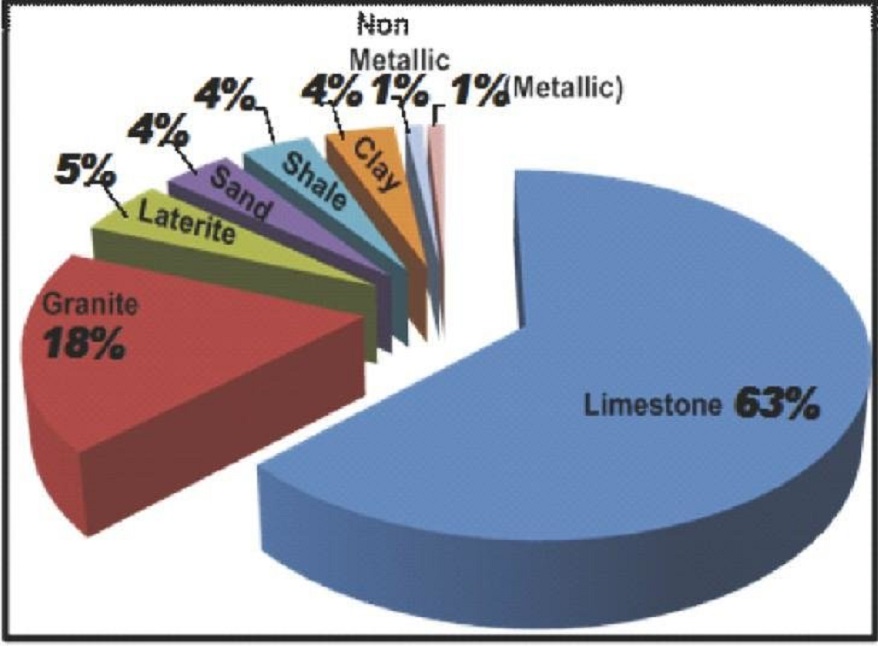
By Adedapo Adesanya
The Minister of Solid Minerals Development, Mr Dele Alake, has called on foreign investors to consider Nigeria amid prevailing barrage of tariffs imposed by the United States, which he says may be a blessing in disguise for African countries.
Speaking during the Fireside Chat session on Foreign Direct Investment in Abu Dhabi, United Arab Emirates, the Minister called on African countries to adopt an introspective approach by looking inward and adjusting their domestic policies to focus more on intra-African trade, with less dependence on external forces.
In a statement by his Special Assistant on Media, Mr Segun Tomori, on Sunday in Abuja, it was stated that the Minister’s remarks were part of his contribution to the discourse on the impact of the tariffs on Africa’s economic climate.
“The barrage of tariffs imposed carries wide-ranging implications for the global economy, U.S. trade relationships, and developing nations, including those in Africa,” he said.
He stressed the need need for African countries to organise economic imperatives to ensure a balance of trade and strengthen intra African trade among countries.
Mr Alake highlighted the persistent challenge faced by African countries, where rare mineral resources were exported without any value addition, noting that the old ‘pit-to-port’ model, where resources are extracted and sent out of the continent can no longer be allowed to continue.
“Interested investors, who wish to come into Africa are welcome to set up their factories in the continent, add value to our mineral resources and create jobs here, rather than just shipping our wealth out of our shores”, he stated.
The minister said that his stance on protecting Africa’s mineral wealth has been adopted by many African countries, particularly mineral-producing nations, where he served as the pioneering chairman of the African Minerals Strategic Group (AMSG).
He reaffirmed that Nigeria’s policy on mineral sector development remained strictly focused on value addition and boosting the local economy through job creation.
Economy
Arnergy Raises $18m to Boost Solar Energy Access in Nigeria
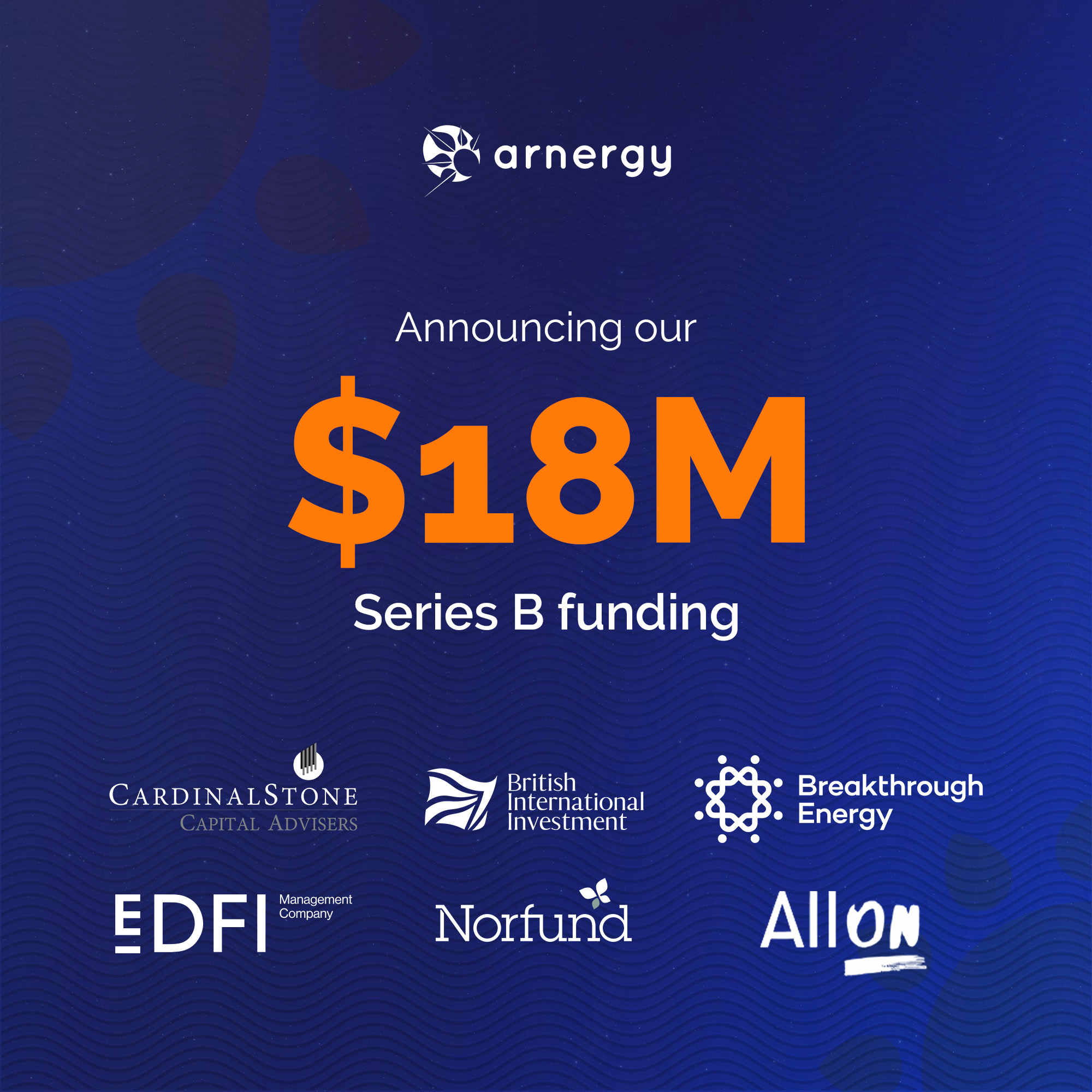
By Adedapo Adesanya
Arnergy, a cleantech startup, has raised a $15 million Series B extension, on top of a $3 million B1 round last year, bringing its total for the round to $18 million to boost solar energy access in Nigeria.
According to TechCrunch, the new funding round was led by Nigerian private equity firm CardinalStone Capital Advisers (CCA) and saw participation from Breakthrough Energy Ventures as well as British International Investment, Norfund, EDFI MC, and All On.
Launched in 2013, Arnergy was established to provide solar systems to homes and businesses across sectors like hospitality, education, finance, agriculture, and healthcare.
The firm raised a $9 million Series A in 2019 backed by Bill Gates’s Breakthrough Energy Ventures.
The Lagos-based cleantech is in talks to raise additional local debt from banks and development financial institutions (DFIs) to support some of its projects including energy-as-a-service (EaaS) solutions for multinationals.
The cleantech is planning to install more than 12,000 systems by 2029 to help boost access to solar energy, which Nigerians have began to adopt increasingly following policy shifts, particularly the removal of fuel subsidies, that led to rise in energy costs.
Arnergy has so far deployed over 1,800 systems across 35 Nigerian states, totaling 9MWp of solar and 23MWh of battery storage.
Over the next four years, it will be targeting a 567 per cent increase to the set 12,000 systems goal.
According to the founder, Mr Femi Adeyemo, there has been increased adaptation of solar energy and this presents the perfect opportunity.
Its lease-to-own product, Z Lite, has gained more traction as customers pay fixed monthly fees over 5 to 10 years before owning the system while outright purchases comprised 60 per cent to 70 per cent of revenue in 2023, accounting for just 25 per cent of sales last year, as per TechCrunch.
“Imagine paying N200,000 (~$125) every month for power. With our product, that drops to N96,000 (~$60). Over five years, it’s a no-brainer what you’ll save,” Mr Adeyemo told the tech publication.
Recall that the federal government has also announced plans to ban importation of solar panels as part of efforts to boost local capacity. This has been projected to see a substantial increase in prices.
Speaking on this, Mr Adeyemo said, “We’re advocates for local manufacturing. But let’s build capacity before shutting the door on imports. Otherwise, we risk doing more harm than good, both to the industry and to the millions of Nigerians who now rely on solar as their primary energy source.”
Economy
Value of NASD OTC Exchange Rises 0.40% to N1.919trn in Week 15 of 2025

By Adedapo Adesanya
The total value of stocks at the NASD Over-the-Counter (OTC) Securities Exchange increased by 0.40 per cent or N9.21 billion to N1.919 trillion in the 15th trading week of 2025 from the N1.911 trillion it ended in Week 14.
The growth was mainly influenced by the inclusion of new shares of Infrastructure Credit Guarantee Company Plc (InfraCredit) to the trading platform in the week.
InfraCredit joined the alternative stock market on March 6 and last week, it brought addition 11.166 million equities, which increased its total securities at the NASD OTC exchange to 26.421 million units.
However, the NASD Unlisted Securities Index (NSI) went down by 0.20 per cent or 31.89 points to 3,277.57 points from the 3,309.46 points it ended a week earlier.
In the week, the total value of trades ballooned by 29,234.5 per cent to N4.79 billion from the N16.3 million recorded in the previous week, and the total volume of transactions increased by 1,485.1 per cent to 171.4 million units from 10.8 million units.
The bourse recorded seven price losers led by Nipco Plc, which depreciated by 20.2 per cent to close at N199.00 per share versus N220.00 per share, Central Securities Clearing System (CSCS) Plc lost 2.5 per cent to finish at N22.70 per unit versus N25.21 per unit, FrieslandCampina Wamco Nigeria Plc shed 1.3 per cent to sell for N35.55 per share against the former value of N36.80 per share, and Afriland Properties Plc went down by 0.6 per cent to N17.80 per unit from N18.42 per unit.
Further, Geo-Fluids Plc slipped by 0.5 per cent to N2.00 per share from N2.48 per share, Acorn Petroleum Plc slid by 0.2 per cent to N1.17 per unit from N1.30 per unit, and InfraCredit Plc declined by 0.09 per cent to N2.34 per share from N2.43 per share.
On the flip side, Mixta Real Estate Plc improved by 0.4 per cent to N4.55 per unit from N4.14 per unit, Lagos Building Investment Company (LBIC) Plc expanded by 0.2 per cent to N2.63 per share from N2.80 per share, First Trust Microfinance Bank Plc appreciated by 0.04 to 62 Kobo per unit from 58 Kobo per unit, and Paintcom Investment Plc gained 0.02 per cent to end at N10.74 per share compared with the preceding week’s N10.72 per share.
The most active stock in the week by value was Okitipupa Plc with N4.6 billion, Paintcom Investment Plc recorded N190.9 million, FrieslandCampina Wamco Nigeria Plc traded N28.0 million, Nipco Plc transacted N3.5 million, and 11 Plc recorded N1.7 million.
Okitipupa Plc was also the most traded stock by volume with 152.1 million units, Paintcom Investment Plc transacted 17.8 million units, FrieslandCampina Wamco Nigeria Plc recorded 0.751 million, Geo-Fluids Plc traded 0.356 million units, and Food Concepts Plc exchanged 0.180 million units.
-

 Feature/OPED5 years ago
Feature/OPED5 years agoDavos was Different this year
-
Travel/Tourism9 years ago
Lagos Seals Western Lodge Hotel In Ikorodu
-

 Showbiz2 years ago
Showbiz2 years agoEstranged Lover Releases Videos of Empress Njamah Bathing
-

 Banking7 years ago
Banking7 years agoSort Codes of GTBank Branches in Nigeria
-

 Economy2 years ago
Economy2 years agoSubsidy Removal: CNG at N130 Per Litre Cheaper Than Petrol—IPMAN
-

 Banking2 years ago
Banking2 years agoFirst Bank Announces Planned Downtime
-

 Sports2 years ago
Sports2 years agoHighest Paid Nigerian Footballer – How Much Do Nigerian Footballers Earn
-

 Technology4 years ago
Technology4 years agoHow To Link Your MTN, Airtel, Glo, 9mobile Lines to NIN



